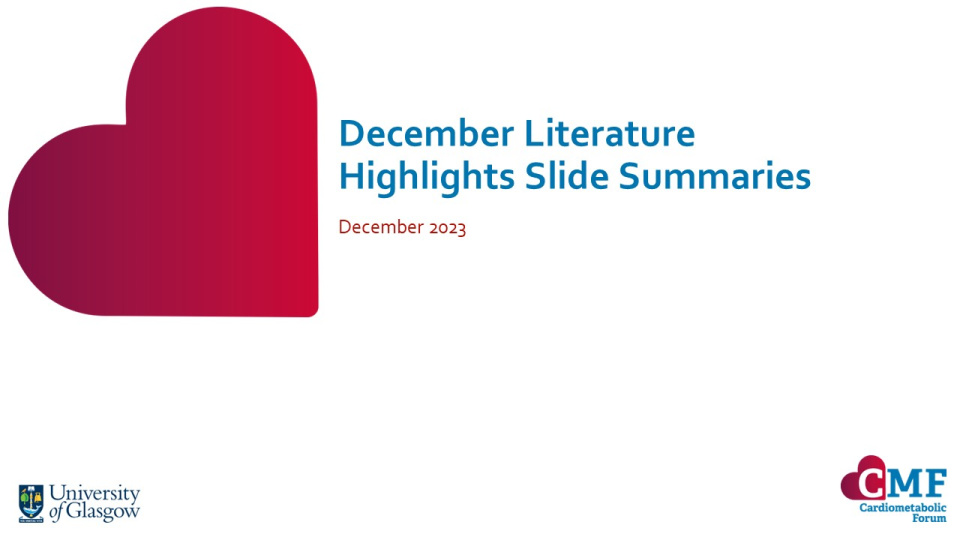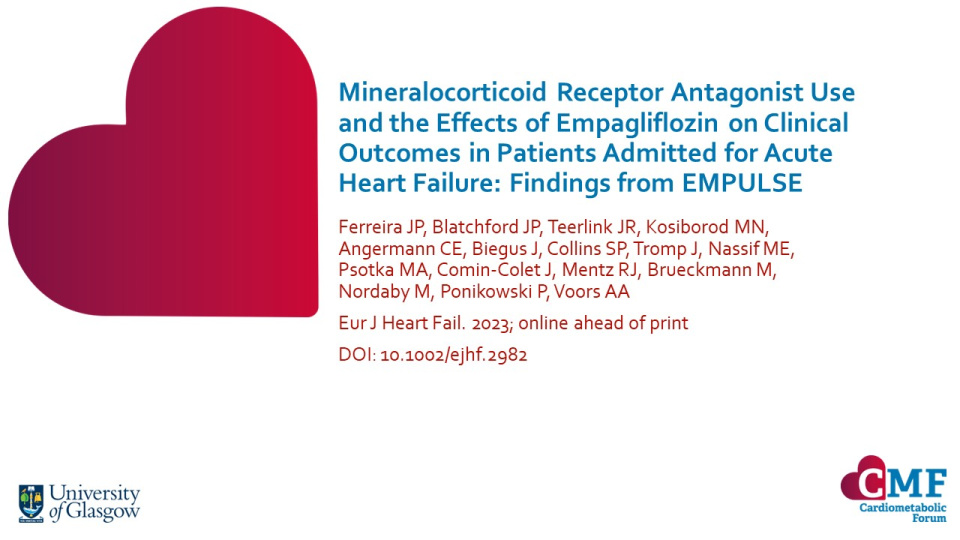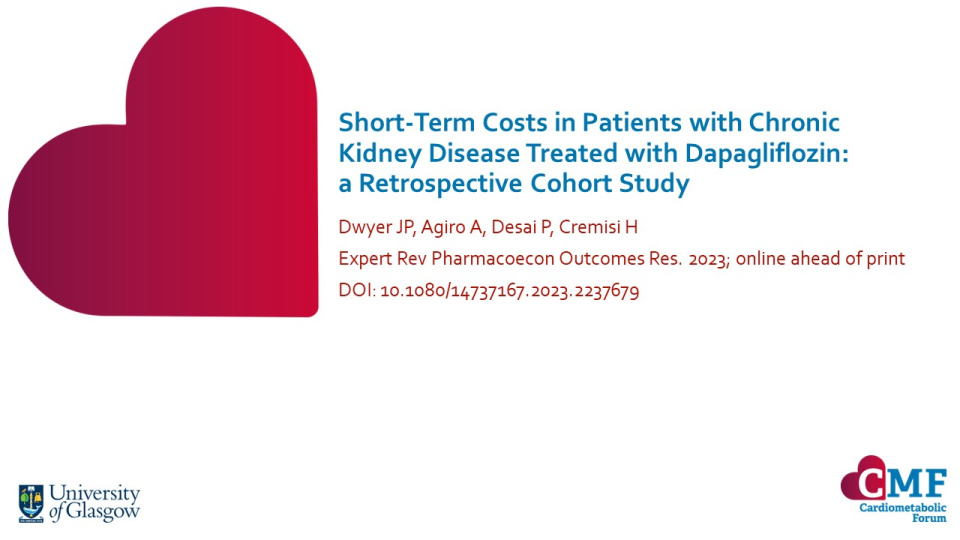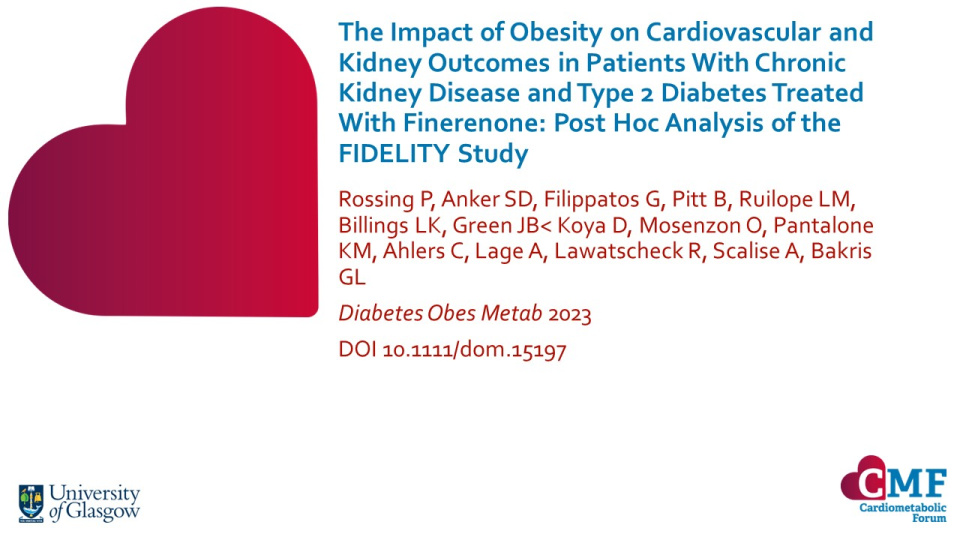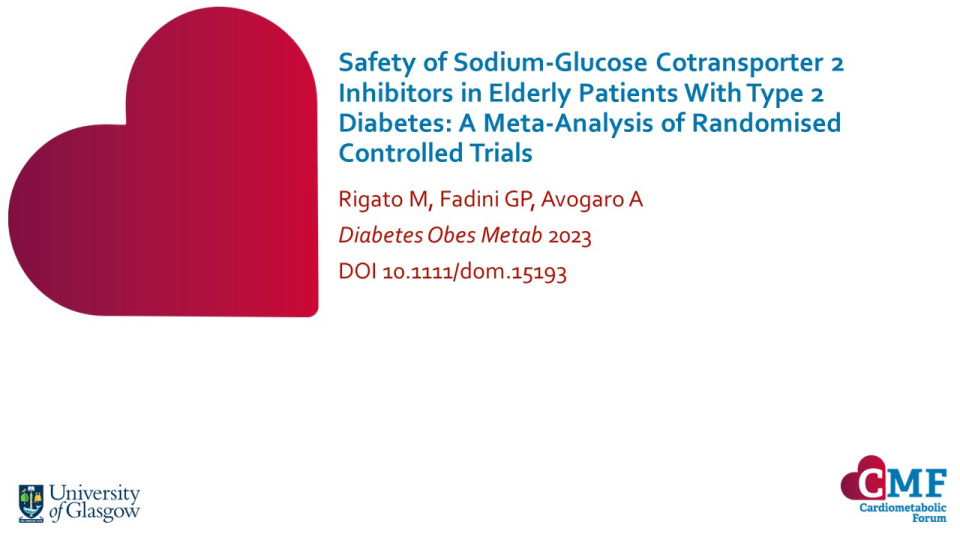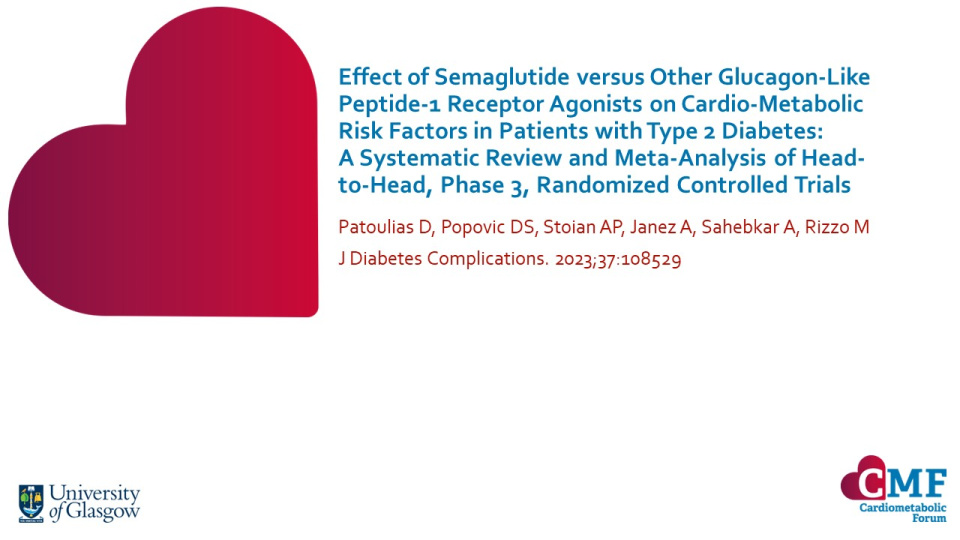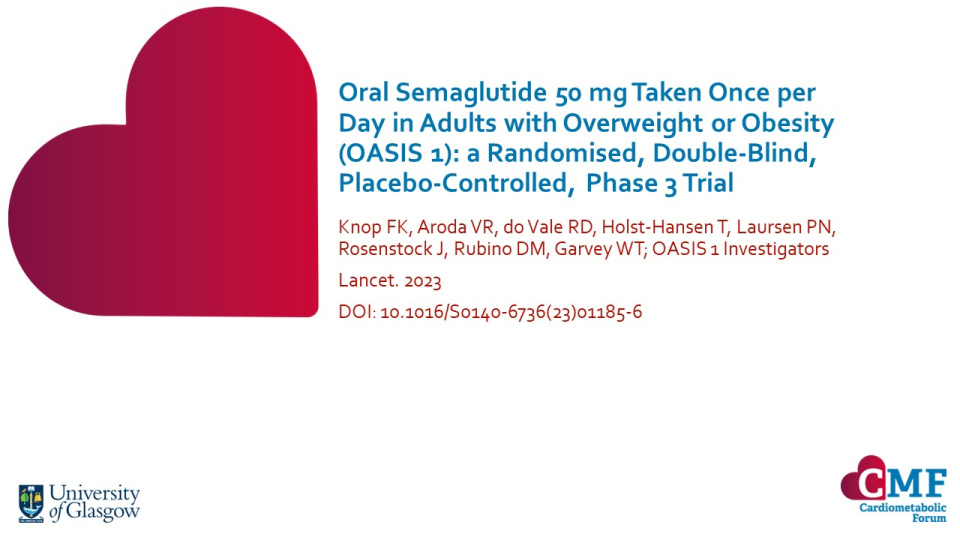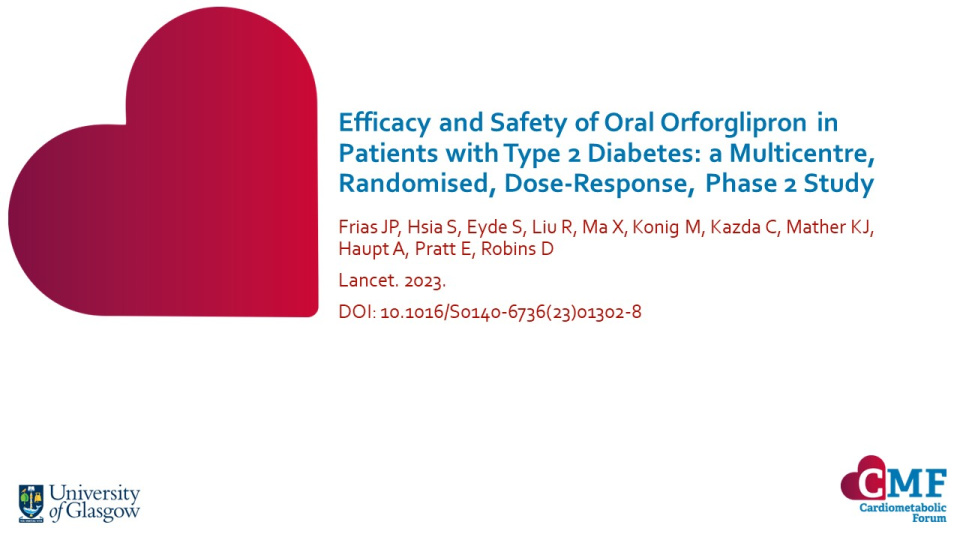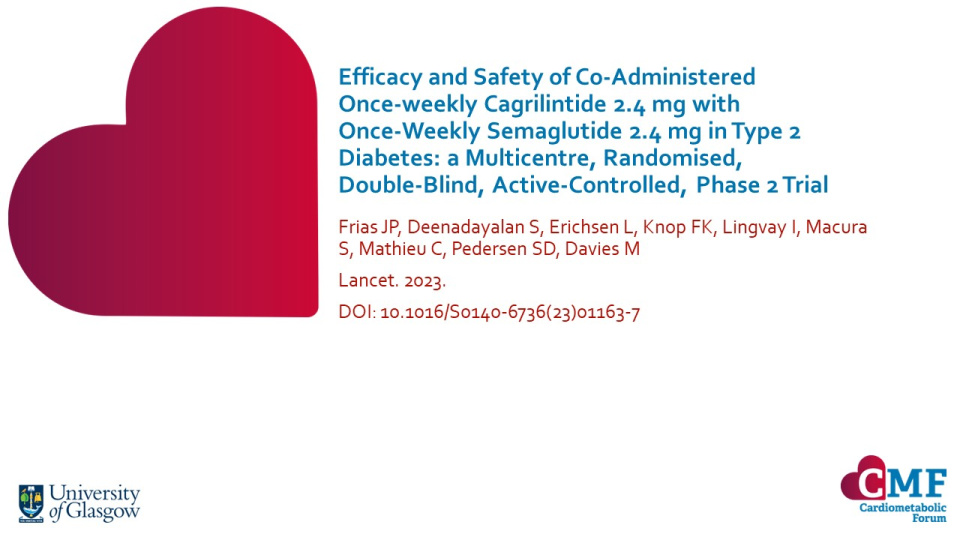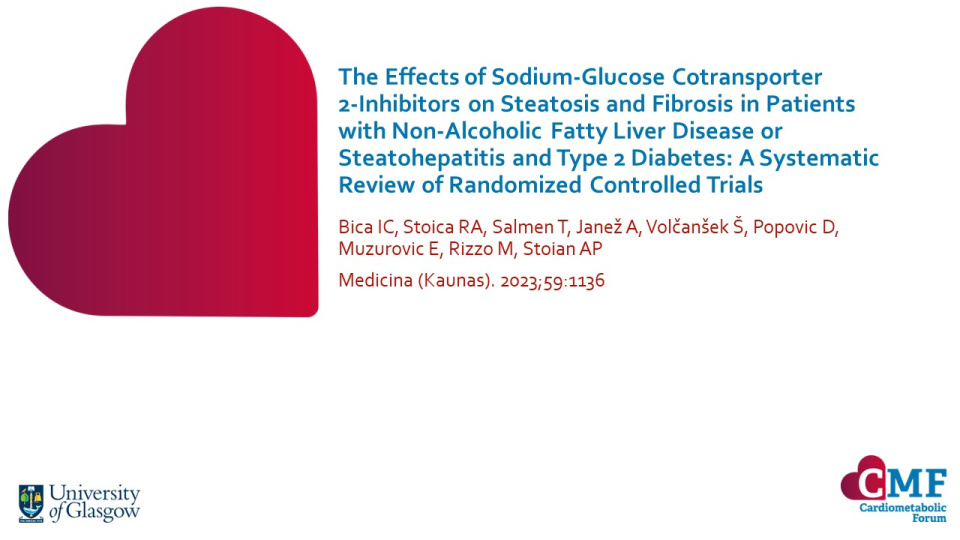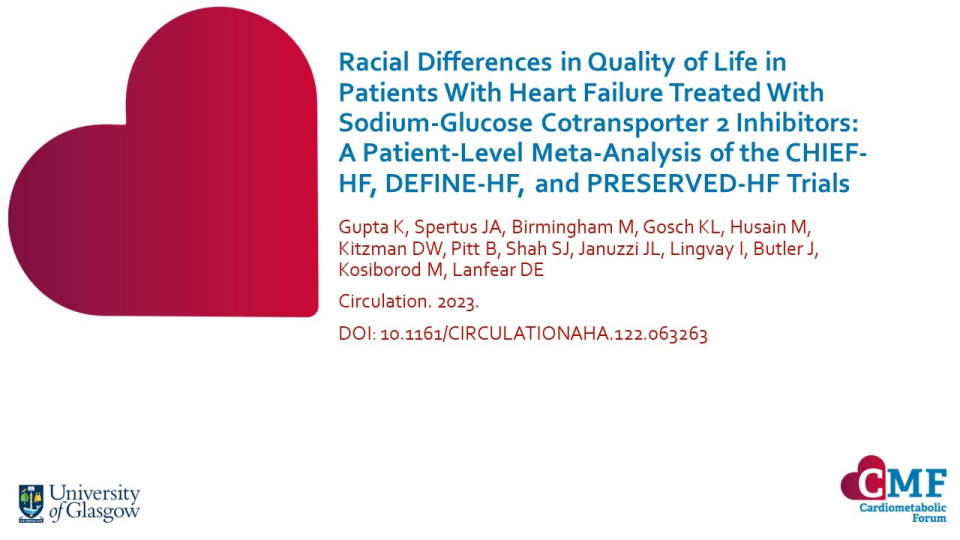Publications
Stay up to date with our literature reviews which are curated by experts to feature the most important publications released each month. Explore our publications for access to concise summary slides for your own use.
Mineralocorticoid Receptor Antagonist Use and the Effects of Empagliflozin on Clinical Outcomes in Patients Admitted for Acute Heart Failure: Findings from EMPULSE
Eur J Heart Fail. 2023; online ahead of print DOI: 10.1002/ejhf.2982
In the EMPULSE trial, empagliflozin produced greater clinical benefit than placebo in patients hospitalised for AHF. Although many patients with AHF are treated with MRAs, the interplay between empagliflozin and MRAs in AHF has not been explored. A post-hoc analysis of the EMPULSE trial aimed to evaluate the efficacy and safety of empagliflozin versus placebo according to MRA use at baseline.
Keywords:
Short-Term Costs in Patients with Chronic Kidney Disease Treated with Dapagliflozin: a Retrospective Cohort Study
Expert Rev Pharmacoecon Outcomes Res. 2023; online ahead of print DOI: 10.1080/14737167.2023.2237679
Analyses have found that dapagliflozin is cost-effective in the long term in patients with non-diabetic CKD and in patients with CKD with or without T2D. The slowing of eGFR decline and the early reduction in HF hospitalisation seen with dapagliflozin suggest that there is potential for short-term cost benefits in patients with CKD; however, there is a lack of real-world evidence. This retrospective observational cohort study described the impact of dapagliflozin on short-term medical costs in propensity matched patients with stage 3 CKD.
Keywords:
The Impact of Obesity on Cardiovascular and Kidney Outcomes in Patients with Chronic Kidney Disease and Type 2 Diabetes Treated with Finerenone: Post hoc analysis of the FIDELITY Study
Diabetes Obes Metab. 2023 doi Epub ahead of print : 10.1111/dom.15197
Patients with obesity may benefit more from treatment with mineralocorticoid receptor antagonists given their higher levels of circulating aldosterone and therefore potentially higher levels of MRs in visceral fat. The aim of this analysis was to assess the effect of finerenone on the risk of cardiovascular and kidney outcomes in patients with chronic kidney disease and type 2 diabetes, with and without obesity.
Keywords:
Safety of Sodium-Glucose Cotransporter 2 Inhibitors in Elderly Patients with Type 2 Diabetes: A Meta-Analysis of Randomised Controlled Trials
Diabetes Obes Metab 2023 DOI 10.1111/dom.15193
SGLT2is are effective in preventing adverse outcomes of heart failure and chronic kidney disease, which are highly prevalent in the elderly. While SGLT2is are generally well tolerated, elderly patients may be more susceptible to developing AEs reported with this class of drug, such as infections, fracture, and AKI. Clinical experience with SGLT2is in the elderly and very elderly is limited.
Effect of Semaglutide versus Other Glucagon-Like Peptide-1 Receptor Agonists on Cardio-Metabolic Risk Factors in Patients with Type 2 Diabetes: A Systematic Review and Meta-Analysis of Head-to-Head, Phase 3, Randomized Controlled Trials
J Diabetes Complications. 2023;37:108529 DOI: 10.1016/j.jdiacomp.2023.108529
GLP-1RAs vary in their abilities to control glycaemia, reduce body weight and improve other cardiometabolic risk factors. A recent systematic review and meta-analysis assessed the efficacy and safety of semaglutide compared with other GLP-1RAs in head-to-head phase 3 RCTs in adults with T2D.
Keywords:
Oral Semaglutide 50 mg Taken Once per Day in Adults with Overweight or Obesity (OASIS 1): a Randomised, Double-Blind, Placebo-Controlled, Phase 3 Trial
Lancet. 2023. DOI: 10.1016/S0140-6736(23)01185-6
Oral semaglutide 7 mg and 14 mg once-daily are approved for the treatment of T2D and improve glycaemic control with accompanying body weight reductions. A higher dose of once-daily oral semaglutide 50 mg is currently being investigated for the treatment of obesity in people with overweight or obesity, and for glycaemic control in people with T2D. The OASIS 1 trial assessed once-daily oral semaglutide 50 mg in adults with overweight or obesity, without T2D.
Keywords:
Efficacy and Safety of Oral Orforglipron in Patients with Type 2 Diabetes: A Multicentre, Randomised, Dose-Response, Phase 2 Study
Lancet. 2023. DOI: 10.1016/S0140-6736(23)01302-8
Orforglipron, an oral, non-peptide GLP-1RA, was assessed at various once-daily doses (3 mg, 12 mg, 24 mg, 36 mg, 45 mg) and dose-escalation schedules vs placebo and dulaglutide in 383 patients with T2D, with or without metformin, and BMI ≥23 kg/m2, with no food or water restrictions.
Keywords:
Efficacy and Safety of Co-Administered Once-weekly Cagrilintide 2.4 mg with Once-Weekly Semaglutide 2.4 mg in Type 2 Diabetes: a Multicentre, Randomised, Double-Blind, Active-Controlled, Phase 2 Trial
Lancet. 2023. DOI: 10.1016/ S0140-6736(23)01163-7
Combining the GLP-1 RA semaglutide with the long-acting amylin analogue cagrilintide has been shown to have weight-loss benefits. However, the impact of the combination of cagrilintide and semaglutide (CagriSema) on HbA1c is unknown. In a 32-week, double-blind, phase 2 trial, 92 adults with T2D and a BMI ≥27 kg/m2 on metformin, with or without an SGLT2i, were randomised to once-weekly subcutaneous CagriSema, semaglutide or cagrilintide (all escalated to 2.4 mg).
The Effects of Sodium-Glucose Cotransporter 2-Inhibitors on Steatosis and Fibrosis in Patients with Non-Alcoholic Fatty Liver Disease or Steatohepatitis and Type 2 Diabetes: A Systematic Review of Randomized Controlled Trials
Medicina (Kaunas). 2023;59:1136 DOI: 10.3390/medicina59061136
T2D and NAFLD/NASH share common causal pathways. As a class of glucose-lowering agents with well-established cardiovascular benefits, SGLT2i have been studied for effects on steatosis and fibrosis in patients with NAFLD or NASH. A systematic review was conducted to examine the efficacy of SGLT2i on NAFLD/NASH in patients who also had T2D.
Keywords:
Racial Differences in Quality of Life in Patients With Heart Failure Treated With Sodium-Glucose Cotransporter 2 Inhibitors: A Patient-Level Meta-Analysis of the CHIEF-HF, DEFINE-HF, and PRESERVED-HF Trials
Circulation. 2023; DOI: 10.1161/CIRCULATIONAHA.122.063263
Health status outcomes, including symptoms, function and QoL are worse for Black compared with White patients with HF. However, it is not known whether the health status benefits of SGLT2i are similar across races. This patient-level meta-analysis used data from three US-based trials that enrolled a substantial proportion of Black patients (DEFINE-HF, PRESERVED-HF and CHIEF-HF) to assess the effects of SGLT2is versus placebo on health status for Black compared with White patients with HF.

